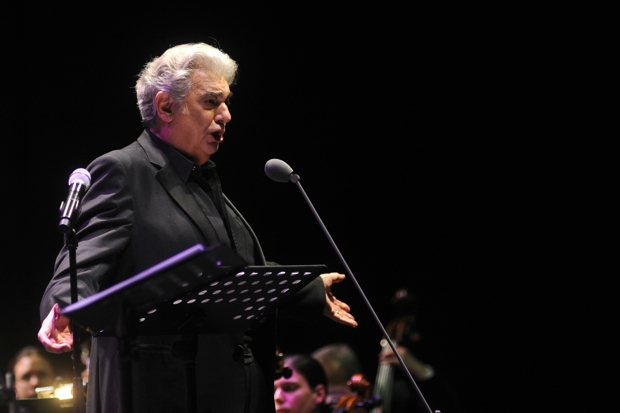In February each year the Oldie magazine gives ‘Oldie of the Year Awards’ to people who show unusual vigour and enterprise in old age. This year’s winner was Mary Berry, the cookery teacher, who at 78 had achieved sudden fame as a presenter and judge on the BBC television show The Great British Bake Off. ‘I just love being an oldie,’ she said. ‘There’s no Botox, no implants and no tucks, and that’s how I think we should all be.’ While this surely reflects the views of Richard Ingrams, the Oldie’s founder and editor, not everyone would agree. To look one’s age as a pastry cook may be no disadvantage, but survival in other forms of popular entertainment may well be dependent on the odd tuck. My question, however, is whether the Oldie’s exaltation of spunk and energy in old age is the right approach. Should everyone be encouraged to go on and on and on? Might not the ideal condition of the senior citizen be one of calm, serenity and wisdom? Must a person be ambitious and competitive till the end of his life?
Anyway, given the Oldie’s attitude (and I can see that it might seem odd to present awards to old people who just sit around doing nothing in particular), it seems clear to me that next year’s winner has to be Placido Domingo, the famous operatic tenor. I say ‘tenor’, but that is no longer the case; for at the age of 73 (one year younger than me), he has a new career as a baritone. Though it is completely irrelevant, this reminds me of a joke my mother used to tell me about an aspiring male singer who once went for an audition with a distinguished singing teacher. After he had sung, the teacher shook his head in disapproval. The singer took his rejection manfully; but as he was leaving the room, he turned and said, ‘Just one thing. Am I a bass or a baritone?’ ‘No,’ replied the teacher.
Well, this decidedly would not apply to Domingo. To any such question the answer would be ‘Yes, whatever’. For he was one of the greatest tenors of the last century, and now — if not in the same league as a baritone (or ‘baritenor’, as he sometimes likes to call it) — he is still very well received by audiences and generally also by critics. As the New York Times said in an article last week, Domingo ‘has been defying the gravity of age, and continuing to command the stages of the world’s leading opera houses, as a result of one of the more remarkable transformations in opera history…one of the great tenors of recent memory and one third of the Three Tenors of pop fame, [he] is making a second career singing baritone roles’. And so busy is he that he has singing performances planned for this spring in Spain, Berlin, Mexico, Poland, Vienna and Los Angeles. He will also be in London in June, not to sing in but to conduct several performances of Tosca at the Royal Opera House.
For decades, Domingo has been preparing for the time when he could no longer sing. He took up conducting, became general director of the Washington National Opera, and then of the Los Angeles Opera, a position he still holds. But after all that he found that he didn’t even have to give up singing. He could go on doing that as well, and at an age when most singers have long since been forced into retirement. Nor does he intend to give up soon. On the contrary, he says he hopes to sing at the Metropolitan Opera House in New York in four years’ time to mark the 50th anniversary of his debut there in 1968. So I don’t see how the Oldie can deny him its award next year unless it decides to change policy and honour instead those who retire gracefully from the limelight.
One has to admire Domingo’s energy, commitment and hard work. But I hope he is also preparing himself for the time, which must surely come, when he won’t be able to continue any career in music, even as a conductor. I hope he will then be like Luciano Pavarotti who, struck down by cancer in his late sixties, felt serene and cheerful as the end approached. A year before his death in 2007 at the age of 71, Pavarotti told an old friend (who gave an account of their conversation to the press): ‘My illness doesn’t torment me. I’ve had everything in life — really everything.’ But there was one thing he said he couldn’t bear, which was listening to his own recordings. ‘If you ask me to dinner and try to please me by putting on one of my old records, I will leave,’ he said. ‘If you want me to stay, let me hear Placido’s voice.’






Comments